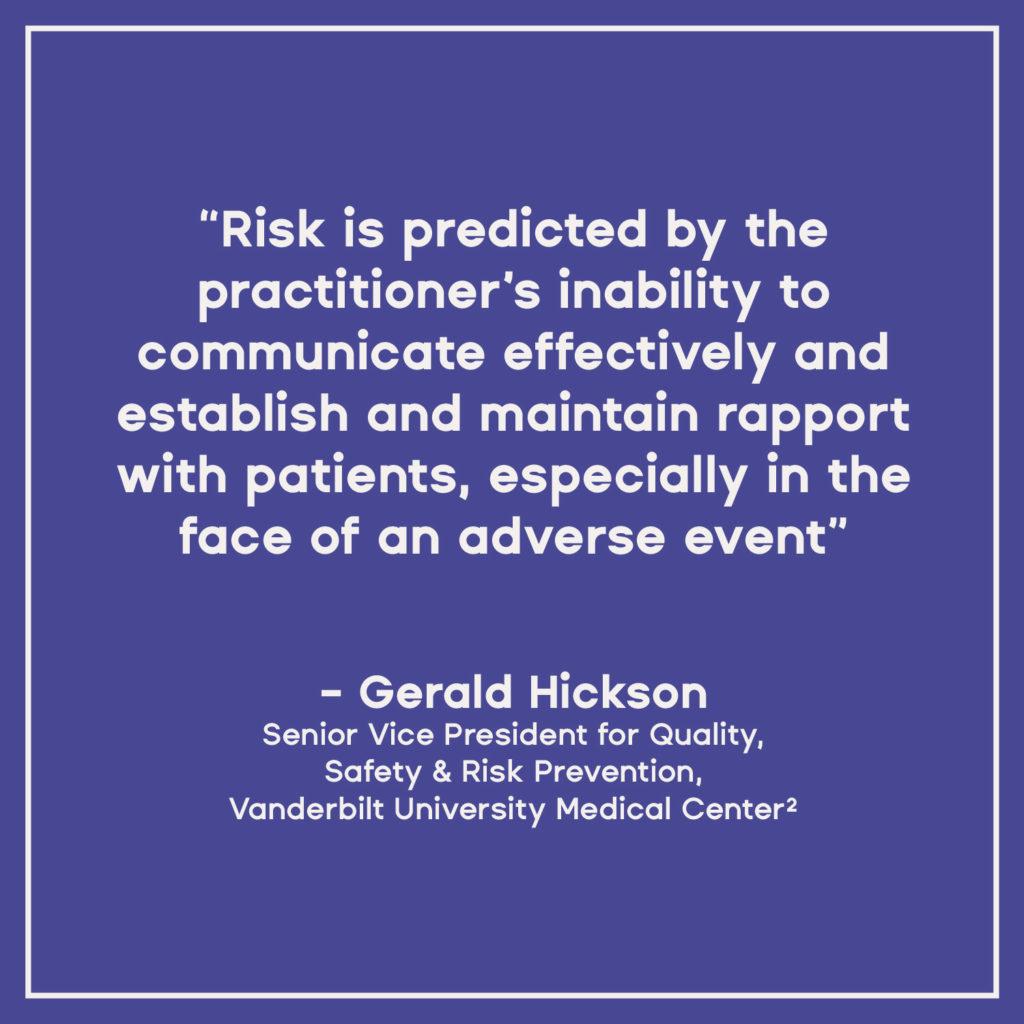In value-based care medicine, there are three important goals: enhancing the quality of care, reducing healthcare costs, and improving the patient experience. In combination, these goals define value in healthcare. As a result, it is important to appreciate some of the foundational factors that help us attain these goals–especially the doctor-patient relationship. Specifically, doctor-patient trust has been found to be a critical element in creating true value in the healthcare experience.
Most healthcare providers recognize the importance of trust in the doctor-patient relationship.1 They appreciate it as a foundational element that allows for quality healthcare. However, patients and doctors do not always share the same perspectives on the level of trust present. Providers often assume patient trust is high and that value-based care medicine is being practiced. But recent surveys, particularly amidst the challenges of the pandemic, tell a different story from the patient’s side. For these reasons, it is essential that doctors understand key strategies to boost trust in the doctor-patient relationship.
A Snapshot of Doctor-Patient Trust Perspectives
A recent survey by University of Chicago’s National Opinion Research Center offers some important insights about trust in the doctor-patient relationship.ost providers believe that they offer quality services to their patients. This includes allowing patients to schedule appointments in an efficient manner and in spending adequate time with patients during assessments. However, this differed from patient perceptions in this regard. In other words, patients did not believe they were receiving the value-based care medicine they should.
Specifically, 24% of patients believed that scheduling appointments with their provider was difficult. Likewise, 23% believed that their doctor did not spend adequate amounts of time with them. Most importantly, and likely due–at least in part–to the above, 22% of patients described a lack of trust in their primary care provider. Each of these points illustrate that a significant number of health care encounters suffered from poor doctor-patient trust.
Value-Based Care Medicine Thrives on Effective Communication
One of the most important strategies in building trust in the doctor-patient relationship pertains to effective communication. In its most basic form, effective communication simply refers to an accurate exchange of information. Not only does this involve verbal exchanges but nonverbal ones as well. This does not only pertain to the information a doctor gives a patient, but also insights that the patient offers. Thus, physicians must both communicate clearly and in a manner that a patient can comprehend, and also must invest in active listening to grasp what the patient is sharing. Value-based care thrives in an environment characterized by effective communication between doctor and patient, which engenders a deeper level of rapport that improves doctor-patient trust over time.
Personalizing the Doctor-Patient Encounter
One of the most important aspects of value-based care medicine relates to the quality of the patient experience. If patient satisfaction levels are high, the value of health care provided naturally increases.3 Yet the US healthcare system features notoriously low patient satisfaction. At the same time, doctors have been encouraged to adopt more standardized approaches to care. While this may be more efficient, it can undermine the ability to offer a personalized approach. And when such personalization is absent, the ability to foster doctor-patient trust is more difficult. Understanding this, providers can enhance doctor-patient trust and value by offering greater patient centric care. Not only does this increase the value of care but also fosters better patient-doctor relationships.
Overcoming Recent Setbacks Due to the Pandemic
Understandably, COVID-19 imposed a number of challenges to providers and patients alike. Telehealth services were new to many during this time. Trying to maintain relationships and doctor-patient trust through technologies was certainly challenging.4 At the same time, health care resources were strained, and patients and families were notably under stress. It is therefore not surprising that trust was undermined during this time. But in order to regain that trust, doctors need to invest in the best practices referenced above. Through these efforts, doctor-patient trust will improve, and value-based care medicine can be better realized.
1 By. “The Importance of Physician-Patient Relationships Communication and Trust in Health Care.” Duke Personalized Health Care, March 11, 2019. https://dukepersonalizedhealth.org/2019/03/the-importance-of-physician-patient-relationships-communication-and-trust-in-health-care/.
2 Schleiter, K.E. (2009). Difficult Patient-Physician Relationships and the Risk of Medical Malpractice Litigation. AMA Journal of Ethics. Retrieved from https://journalofethics.ama-assn.org/article/difficult-patient-physician-relationships-and-risk-medical-malpractice-litigation/2009-03
3 Prakash, Bhanu. “Patient Satisfaction.” Journal of cutaneous and aesthetic surgery. Medknow Publications & Media Pvt Ltd, September 2010. https://www.ncbi.nlm.nih.gov/pmc/articles/PMC3047732/.
4 David W. Baker, MD. “Trust in Health Care in the Time of COVID-19.” JAMA. JAMA Network, December 15, 2020. https://jamanetwork.com/journals/jama/fullarticle/2774033.



